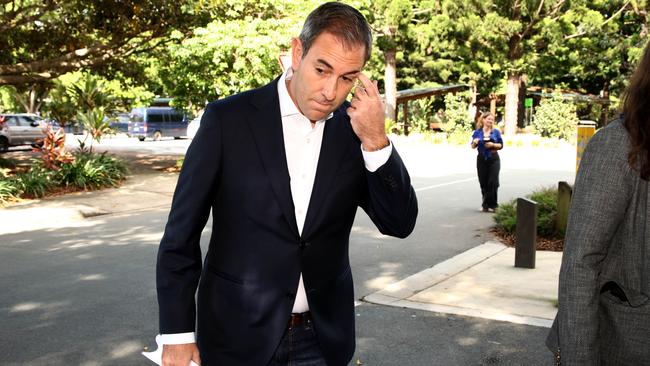Investment bonds: the super tax ‘escape hatch’ fails to sway top financial advisers
Investment bonds are red hot as an alternative to superannuation, but top advisers often don’t like them. Here’s why.

As the new super tax throws the wealth management sector into a spin, tax-efficient investment bonds are having a golden run. But advisers on The Australian’s Top 150 advisers list remain highly sceptical over a product now being touted as the “super tax escape hatch”.
The new super tax – also called Division 296 – means a headline tax rate for wealthy super investors of 30 per cent. Investors pay the same level of tax on investment bonds but their money does not have to be locked up for a lifetime.
At their best, investment bonds offer useful tax relief for long-term holders. It works like this – if you hold the bond for 10 years or more, the bond manager allows the individual to receive all eventual capital gains tax free. Any ongoing tax due on the investments in the bond are taxed each year at 30 per cent. (Terms and conditions apply – especially if the investor takes the money out before the decade-long deal naturally expires.)

A closer look at the $12bn investment bond market shows that investment bonds are most useful to high-income earners – on an effective tax rate of 47 per cent – the very same cohort that is now up in arms over the new super tax.
Although investors can place as little as $1000 at a time into investment bonds, the median amount investors place in the bonds is estimated at $250,000. (The bonds are also known as insurance bonds or education bonds).
But advisers on The Australian’s Top 150 Advisers List are not coming to the party.
“I see them as expensive and lacking in choice – the investor is constrained and that’s not necessary, ” Hugh Robertson of the Centaur Financial Service group said.
“I would just put people into starting a company and they can use the same 30 per cent tax rates – that’s what a lot of big clients are doing.”
Other top advisers echo Mr Robertson’s doubts. They suggest the bonds do not suit anyone on a lower tax rate while pointing to the layers of fees inside investment bonds and the limited range of choices on the menu at major investment bond providers.
James Gerrard of financialadviser.com.au, writing in The Australian, said: “The disadvantages of investment bonds outweigh the benefits … you might say investment bonds are insurance policies without insurance benefits.”
Felipe Araujo, the CEO of Generation Life – which has a market share of roughly one third inside the investment bond sector – said: “We do a good job on reducing the effective tax rate for wealth accumulators but we don’t say this product is recommended to an investor who is paying less than 30 per cent tax.
“Also I would point out that the range of options has widened considerably when it comes to investment bonds.”
While investors in superannuation products may have hundreds of options, the range inside investment bonds might be closer to 80 choices.
Mr Araujo is on the front foot in putting investment bonds forward as an alternative for wealthy super investors.
“This area was relatively small for us until recently but I think if the government goes ahead with the Division 296 legislation it is clearly going to be a catalyst for our sector,” he said.
Leading providers of investment bonds, such as ASX-listed Generation Life, have reported a 50 per cent inflow surge in recent months.
In contrast, money is leaving super funds as investors caught in the new super tax net brace for an additional 15 per cent tax on earnings on amounts over $3m.
The new tax will be based on unrealised gains, a move that has led to a wide outcry across the investment sector. Treasurer Jim Chalmers has indicated he has no intention of making any changes to the new tax, also reiterating his plan to introduce the tax without any provision for inflation indexing.
James Kirby is hosting a special edition of the Money Puzzle podcast on the new super tax on Thursday May 22







To join the conversation, please log in. Don't have an account? Register
Join the conversation, you are commenting as Logout